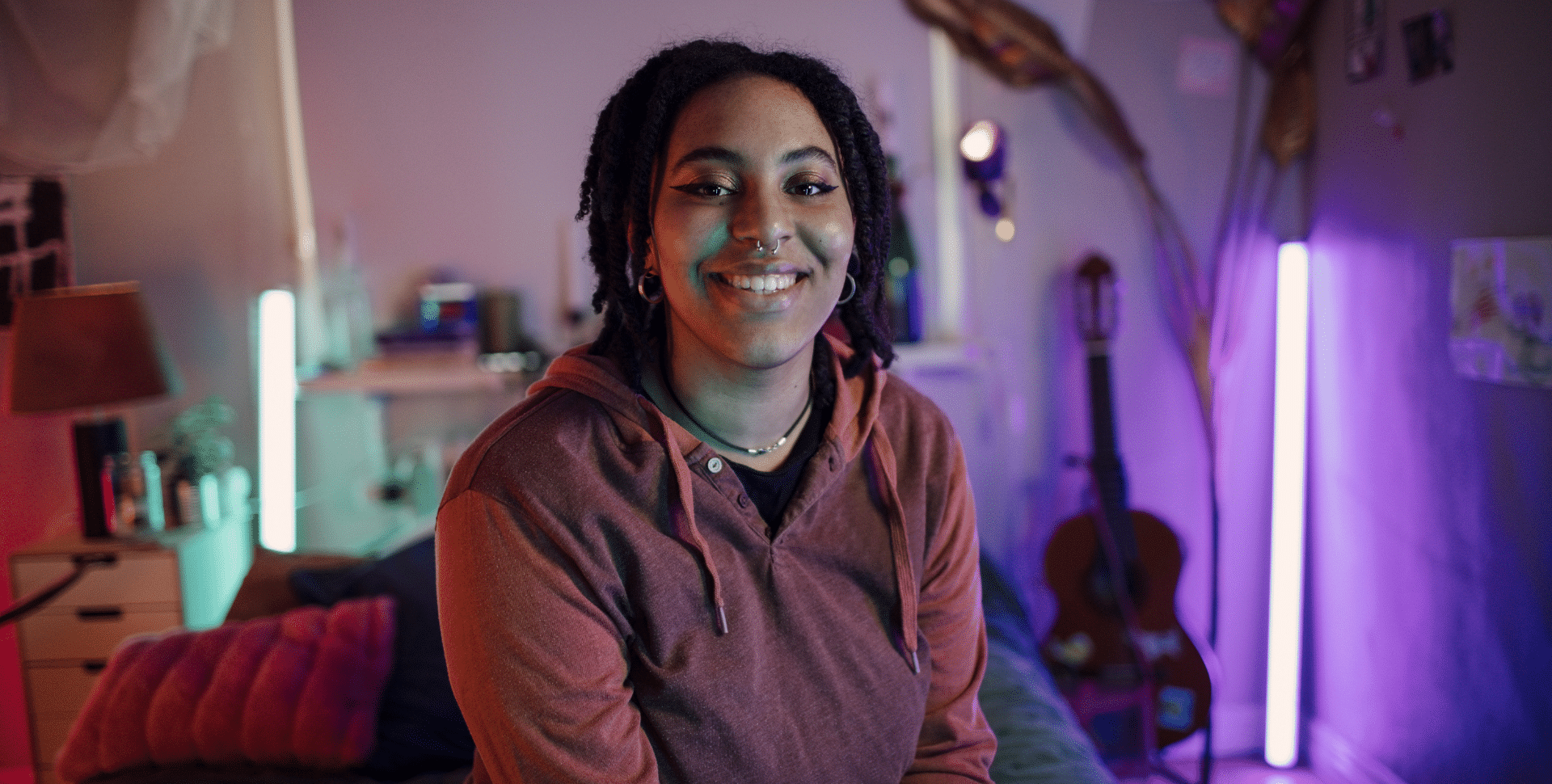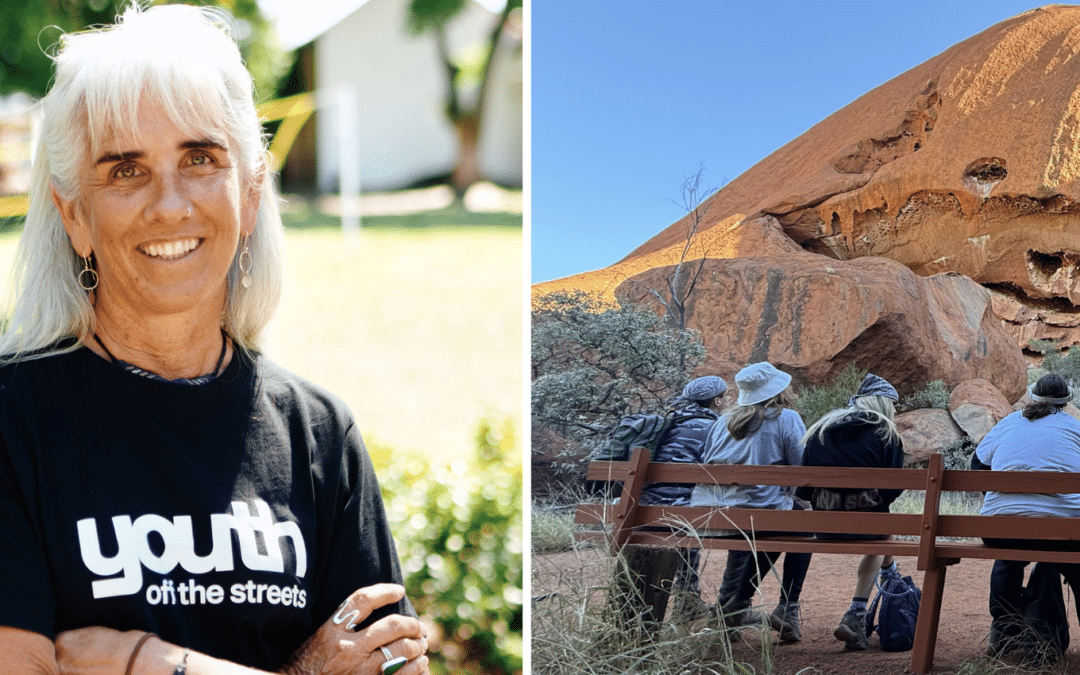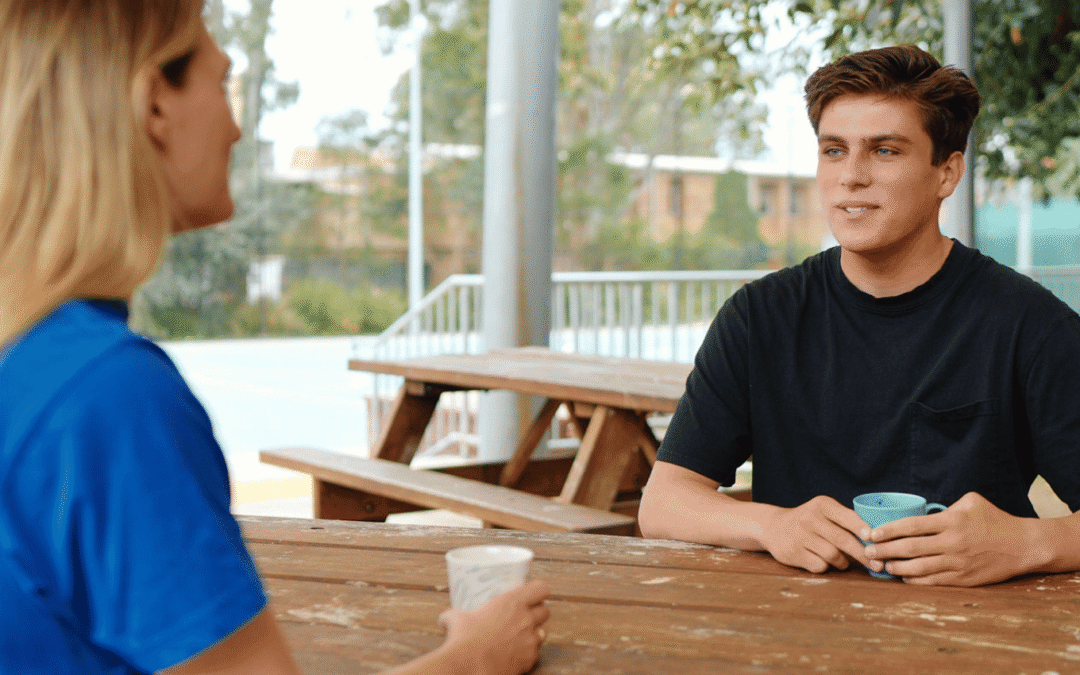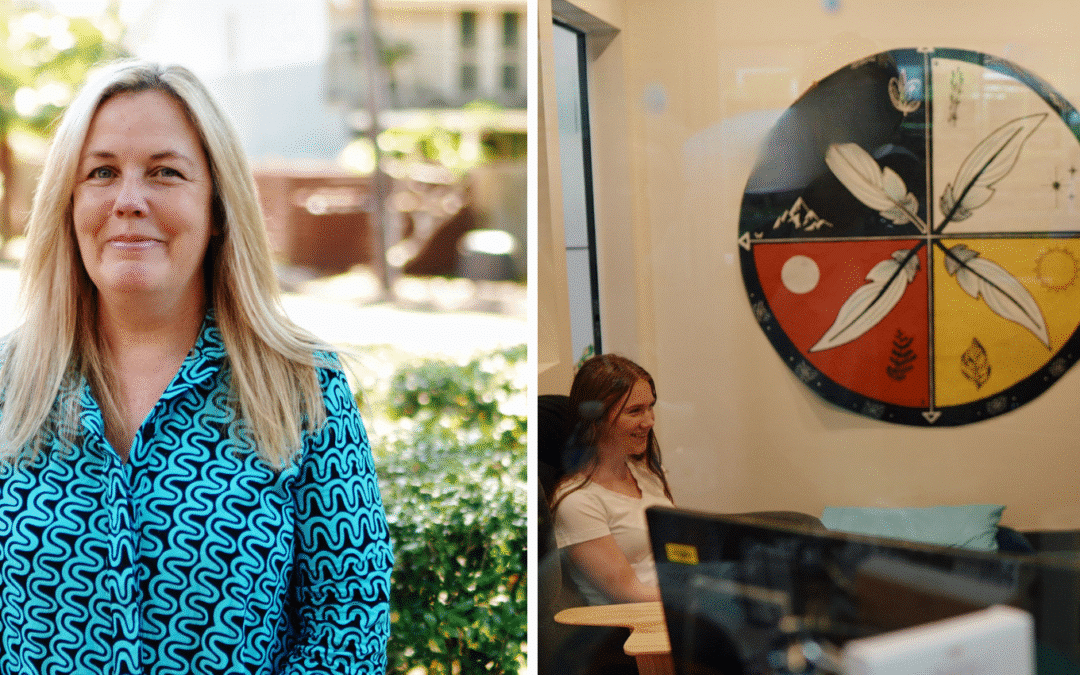Zara* grew up in a household fraught with violence and control.
Zara’s parents constantly argued and held cultural views that often clashed with their identity as a transgender person and their aspirations for the future.
“My parents didn’t get along well, and us kids always got the short end of the stick,” Zara explains.
“We were always getting into arguments and there was a lot of manipulation, threats and physical abuse.
“I felt depressed and, deep down, I always knew this wasn’t how I wanted to live.”
Zara was always thinking about running away. At one point, for a few nights, she slept in a park alone.
“It was scary,” she recalls. “I didn’t really sleep because my heart was beating so fast. I remember in that moment freaking out.”
She also spent many nights on friends’ couches.
Wherever she ended up, she would always get caught and brought home against her will.
“My parents weren’t okay with me leaving,” says Zara. “They knew caseworkers were involved and were worried about how it would look for them.”
Over time, the threats became more serious. The violence at home escalated to the point where Zara believed they could be murdered.
“My mum caught me packing my bag, and we got into a fight,” Zara recalls. “She wouldn’t let me go to school.
“She told me she was going to ship me off to another city or bury me in the backyard.”
When Zara didn’t show up to school, the staff called the police to do a welfare check.
When Zara heard the police arrive, they took the courageous step of leaving home to escape abuse that had become unbearable.
At 16, the police connected Zara with a crisis refuge.
After moving across different temporary accommodations, Zara eventually found a private rental.
“I kept getting rejected – it was hard to find somewhere to rent because no one wanted to take a chance on someone under 18,” Zara recalls.
“When I finally got an apartment, it was weird because I was trying to figure things out on my own without any hope and support.”
Because Zara was only 16, it was difficult to get simple items, like signing up for home internet or buying a kitchen knife.
“A friend eventually had to buy a kitchen knife for me after seeing me struggle to cut vegetables, because I couldn’t buy one on my own,” Zara says.
Zara tried to apply for uni twice. Both times, they had to drop out because of their precarious financial and housing situation.
“I was always on edge,” they recall. “My studies kept falling through because I couldn’t keep up.
“I had to juggle work and study. You’re supposed to commit to four years of uni, but I wasn’t even sure I would have a home the next year.”
Oftentimes Zara would skip meals because they couldn’t afford groceries.
“The bills would pile up, and I had no money to buy food for myself,” they say.
Zara also found it difficult to receive the mental health support they needed through an incredibly distressing time.
“The public health system is flawed,” Zara states.
“There were months-long waitlists, and when I finally spoke to someone, I didn’t feel supported.”
Zara felt like they had no hope.
“I was sure I was going to end up as one of the bad statistics,” they say.
“I couldn’t plan for the future. There are a million extra hurdles to overcome when you’re at a disadvantage.”
Zara felt alone, and that their friends didn’t understand.
“It’s demoralising,” they explain. “It’s hard to approach your friends and say, ‘it didn’t work out this time’.
“And I had to constantly ask things like, ‘is it okay if I sleep on your couch tonight?’”
Zara turned to drugs to escape the difficult reality they faced every day.
“I started smoking weed and eventually used heavier drugs,” they recall.
When Zara was diagnosed with complex post-traumatic stress disorder, they started to understand the internal struggles they were experiencing.
“I was trying to escape everything going on,” they explain. “I tried speaking to multiple counsellors, but I was addicted and felt a bit of shame.”
It wasn’t until Zara connected with Youth Off The Streets at 18 years old that things began to improve.
Youth Off The Streets provided Zara with the crucial support needed to navigate the challenges of living independently.
Zara’s first caseworker helped with essential needs like groceries and finding housing.
“Work wasn’t very stable and I studied online while living with a housemate,” they explain.
“Things didn’t go well with them and I had to break the lease and pay off everything. Eventually, I moved into Don Bosco House.”
During this period, Zara also navigated the legal system.
The abuse she had experienced at home led to a court case where Zara’s mother was charged with domestic violence and intimidation.
Despite the turmoil, Zara managed to finish high school while working at a burger shop to support themselves.
“Finding the motivation to get back up was a bit of a challenge,” Zara admits.
The support from Youth Off The Streets played a pivotal role in helping Zara navigate these difficult times.
“They helped when I didn’t have any hope,” Zara says. “The caseworkers are supportive and try to help with whatever they can, like getting employment and taking the next step towards independence.
“When you don’t have an adult figure in your life, who can support you?”
Zara worked with an alcohol and other drugs counsellor to overcome their substance misuse, and now lives in transitional housing.
They’ve become actively involved with Youth Off The Streets’ Youth Advisory Group (YAG), participating in meetings and events focusing on issues young people face.
“We plan events and workshops on topics like abuse, mental health and consent,” says Zara. “We even ran one of the ‘Feel Good Nights’ for the community with food, karaoke and free haircuts.”
Today, Zara aspires to study health courses and eventually pursue a career in paramedicine.
“I hope to go back and study, find work again and eventually move to a place I can afford.”
*Name and image changed to protect the identity of the young person.



